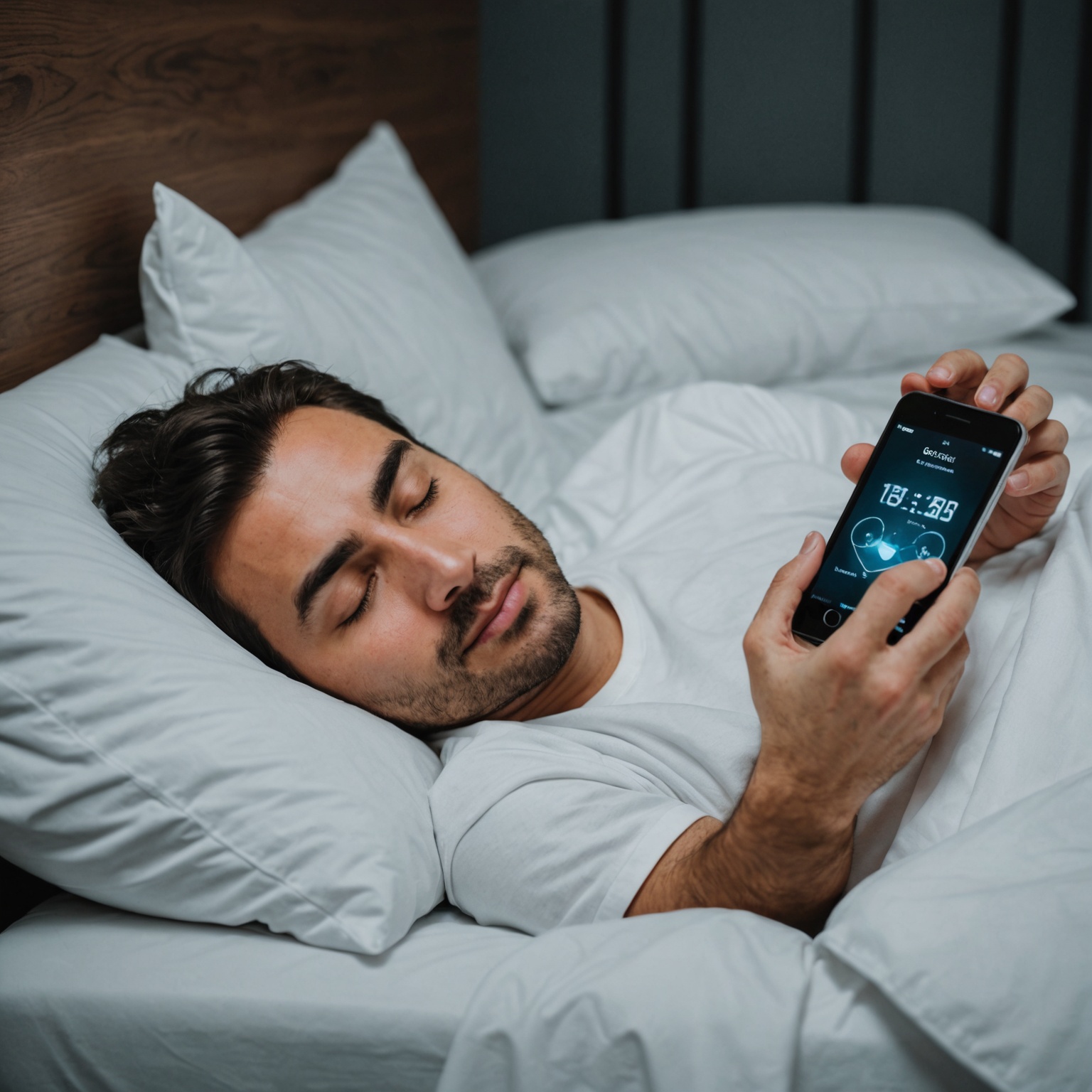How Can You Use Your Smartphone to Monitor and Improve Sleep Quality?

In today's fast-paced world, quality sleep is crucial for maintaining good health and overall well-being. Yet, many of us struggle to get a good night's rest. Fortunately, technology offers a solution. By leveraging your smartphone, you can monitor and improve your sleep quality. Using sleep apps and tracking data can help you understand your sleep patterns and make necessary adjustments for better rest. In this article, we'll explore how to use your smartphone effectively for sleep tracking and improvement.
Understanding Sleep Tracking Apps
Sleep tracking apps have become increasingly popular as people seek to enhance their sleep hygiene and overall health. These apps use the sensors in your phone or wearable devices like the Apple Watch to collect data about your sleep cycles, heart rate, and movements throughout the night. This information is then analyzed to provide insights into your sleep patterns.
A voir aussi : What Are the Best Practices for Using Smartphones in Augmented Reality Gaming?
Popular apps like Sleep Cycle, Sleep Score, and Pillow offer various features to help users track and improve their sleep. These apps can show you how much time you spend in different sleep stages (light, deep, and REM sleep), your heart rate while sleeping, and other relevant metrics. Most of these apps are available for free, though some offer premium features for a fee.
By using these apps, you can gain a better understanding of your sleep patterns and identify potential issues affecting your sleep quality, such as frequent awakenings or insufficient deep sleep. Armed with this information, you can make informed decisions about how to improve your sleep hygiene and overall well-being.
A lire également : How to Set Up a Comprehensive Smart Security Network Using Your Smartphone?
Leveraging Data for Better Sleep
The data collected by sleep tracking apps can be incredibly valuable in helping you identify and address factors that may be disrupting your sleep. For example, if your sleep tracker reveals that you are consistently waking up during the night, you may want to examine potential causes such as stress, caffeine consumption, or an uncomfortable sleep environment.
Sleep tracking apps often provide personalized recommendations based on your data to help you improve your sleep quality. These suggestions might include adjusting your bedtime, reducing screen time before bed, or creating a more relaxing bedtime routine. By following these recommendations, you can make positive changes to your sleep habits and enjoy more restful nights.
Moreover, sleep tracking data can be shared with healthcare professionals, allowing them to have a more comprehensive understanding of your sleep patterns and provide targeted advice or treatment. This can be particularly useful for individuals with chronic sleep issues or conditions such as sleep apnea.
The Role of Wearable Devices
In addition to smartphone apps, wearable devices like fitness trackers and smartwatches can also play a significant role in monitoring and improving your sleep quality. Devices such as the Fitbit, Garmin, and Apple Watch are equipped with advanced sensors that can track your sleep stages, heart rate, and even your oxygen levels while you sleep.
These wearables work seamlessly with sleep tracking apps, providing more accurate and detailed data about your sleep patterns. By wearing these devices regularly, you can gain a deeper understanding of your sleep quality and make informed decisions about how to improve it.
Wearable devices also offer additional features that can enhance your sleep experience. For example, many wearables have built-in sleep coaching programs that provide personalized tips and guidance to help you develop healthier sleep habits. Some devices also offer silent alarms that wake you up gently with vibrations, ensuring a more pleasant start to your day.
Integrating Other Health Data
One of the key benefits of using technology to monitor your sleep is the ability to integrate sleep data with other health metrics. Many sleep tracking apps and wearable devices can sync with other health apps, allowing you to see how factors such as diet, exercise, and stress levels impact your sleep.
For example, you might notice that on days when you exercise, you tend to sleep more soundly. Conversely, you might observe that consuming caffeine or alcohol in the evening leads to poorer sleep quality. By understanding these correlations, you can make more informed choices about your lifestyle and habits to promote better sleep.
Furthermore, integrating sleep data with other health information can provide a holistic view of your well-being. This can be particularly useful for individuals with chronic health conditions, as it allows for a more comprehensive understanding of how various factors influence each other. By tracking and analyzing this data, you can take a proactive approach to managing your health and well-being.
Incorporating sleep tracking into your nightly routine can be a game-changer for improving your sleep quality. Smartphone apps and wearable devices offer a wealth of data and insights that can help you understand your sleep patterns and make necessary adjustments to enhance your rest. By leveraging this technology, you can take control of your sleep hygiene and enjoy more restful nights.
So, how can you use your smartphone to monitor and improve sleep quality? Start by exploring free and premium sleep apps, utilizing wearable devices, and integrating sleep data with other health metrics. With the right tools and information at your fingertips, you can achieve a better night's sleep and, ultimately, improve your overall health and well-being.
